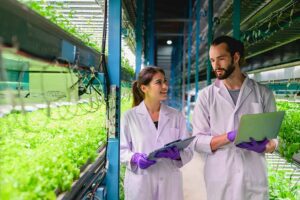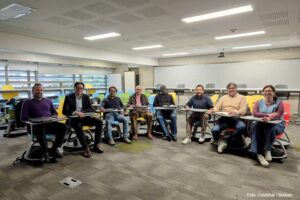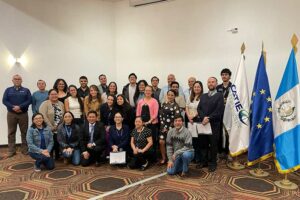Agreement between CATIE and Texas Tech University Drives Projects in Ecological Monitoring, Bioeconomy, and Agroforestry Robotics
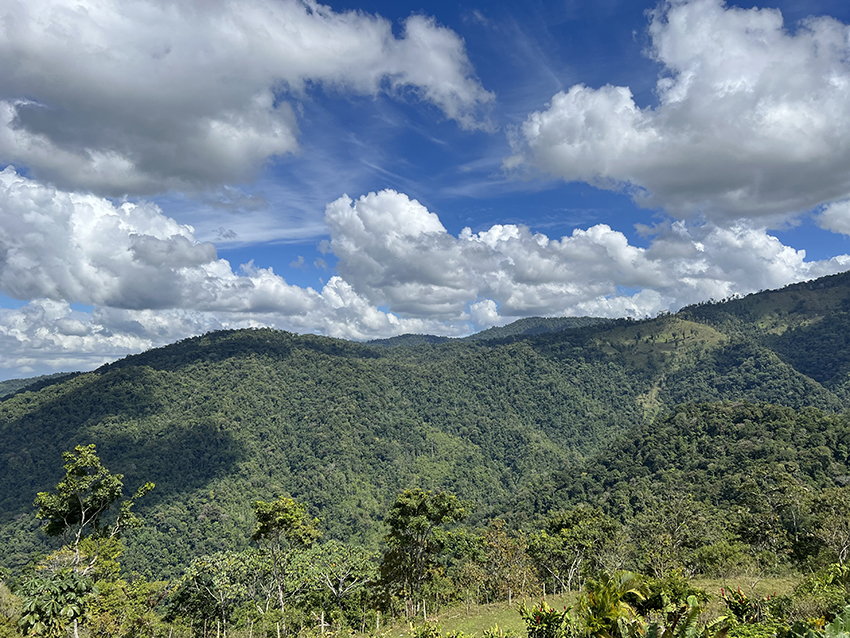
- Collaboration between both institutions aims to share academic experiences and promote cooperation in education and research.
February 13, 2024Thanks to the exchange and collaboration between researchers from CATIE (Tropical Agricultural Research and Higher Education Center) and TTU (Texas Tech University), three research initiatives are currently underway as part of an agreement between the two institutions that promotes innovation and sustainability.
Through several rounds of joint work between researchers from CATIE and TTU, the ongoing proposals include: Remote sensing of ecological dynamics and ecosystem services in productive landscapes, circular systems in the coffee supply chain: promoting bioeconomy and gender equity in the Trifinio Dry Corridor, as well as real-time monitoring of agroforestry system health through robotics.
These three initiatives were selected from a pool of 12 proposals received during a call for submissions made by both institutions from October to December of the previous year.
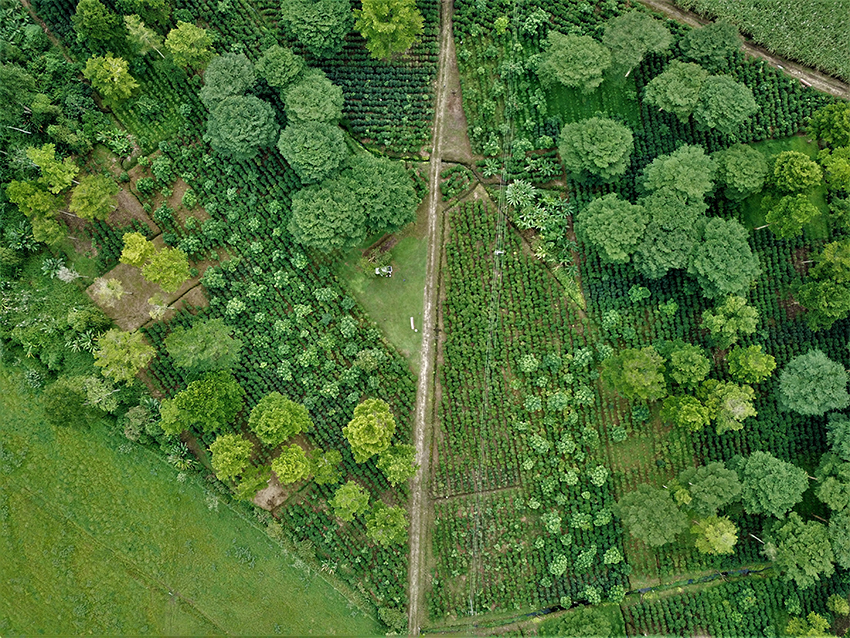
Leida Mercado, the focal point for the TTU-CATIE agreement, stated, "The idea is that this year we can jointly develop at least one solid research proposal, identify sources of funding, and submit the corresponding application. Hoping that next year, we can start the joint implementation of at least one research project."
The agreement signed the previous year between CATIE and TTU aims to share academic experiences and promote collaboration in education and research between the departments and units of both institutions, seeking to have a long-term impact on the selected study landscapes.
The Proposals:
Remote Sensing of Ecological Dynamics
This proposal for remote sensing or monitoring of ecological dynamics and ecosystem services in productive landscapes arises from the collaboration between Carlos Portillo from TTU's Department of Natural Resource Management and researchers Adina Chain, Luis Diego Delgado, and Alejandra Martínez from CATIE's Forests and Biodiversity Unit in Productive Landscapes. The proposal involves integrating taxonomic and functional diversity data from tropical forests with satellite data and remote sensors to study the dynamics of these ecosystems and the potential impacts of changes in landscape configuration and composition. By using spatial analysis techniques and cutting-edge remote sensor technology, combined with long-term field data on the structure and composition of tropical forests, researchers aim to address issues in conservation science, including spatial prioritization of areas and conservation actions at landscape scales that support land managers in tropical forests.
The research aligns with CATIE's strategic vision, which seeks to achieve a balance between the exploitation and preservation of landscapes, ecosystems, and production systems.
Circular Economy in the Coffee Chain
In this case, the innovative proposal aims to transform waste in the coffee chain by transferring advanced technologies to rural areas and promoting women's entrepreneurship to foster gender equality. This initiative involved Professor Kalavathy Rajan from TTU and contributions from Professor Leida Mercado and Postdoc Hanna Wright from CATIE. It will be implemented in the Central American Dry Corridor, in collaboration with the ESCALAR project. ESCALAR.
The plan involves converting lignocellulosic biomass into high-value products, such as pellets, with the goal of improving soil health. The aim is to achieve complete and sustainable utilization of cultivated biomass and forest waste, generating net-negative carbon emissions.
The second part of the proposal focuses on the transfer of innovative technologies and capacity building to promote women's entrepreneurship. This addresses United Nations Sustainable Development Goals #9 and #10 related to inclusive industrialization, sustainability, innovation, and the reduction of financial and socio-economic inequalities.
Real-time Monitoring of Agroforestry System Health through Robotics
Finally, this initiative proposes leveraging robotics in agroforestry to improve efficiency and sustainability. It highlights the use of robots for autonomous planting, soil monitoring, selective harvesting, plant trait assessment, and optimization of growth conditions.
The proposal was developed jointly, thanks to the contributions of Dr. Rolando Cerda from CATIE and Hicham Chaoui, representing the American university.
TTU is expected to provide state-of-the-art facilities, while CATIE will contribute its extensive expertise in tropical agriculture, sustainability, and forest systems.
Both TTU and CATIE expect these initiatives to strengthen the research capacity of both institutions. The collaboration offers opportunities to enhance skills, access diverse methods, and establish meaningful professional connections.
The goal is to increase the visibility of research through the joint execution of initiatives in these renowned institutions, enhancing the academic and professional reputation of the involved researchers. This will also provide a solid foundation for the long-term sustainability of projects and collaborations between both institutions.
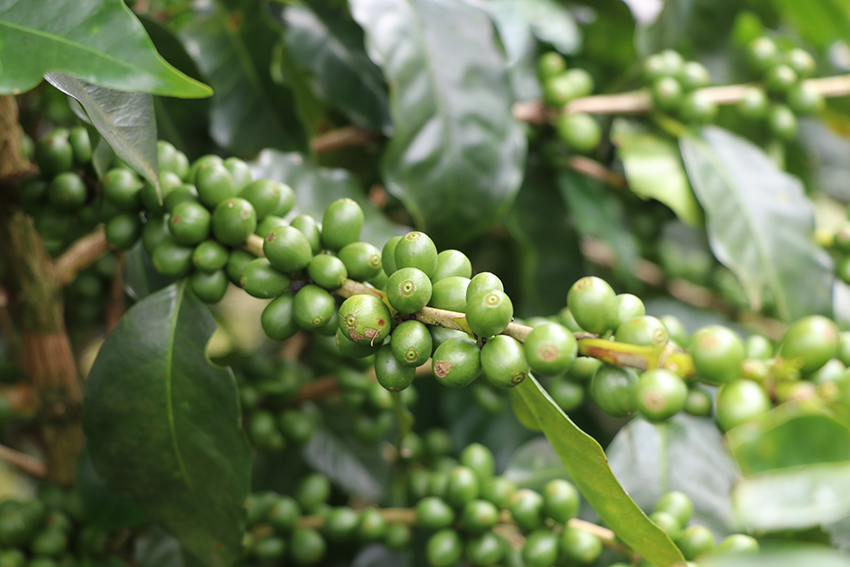
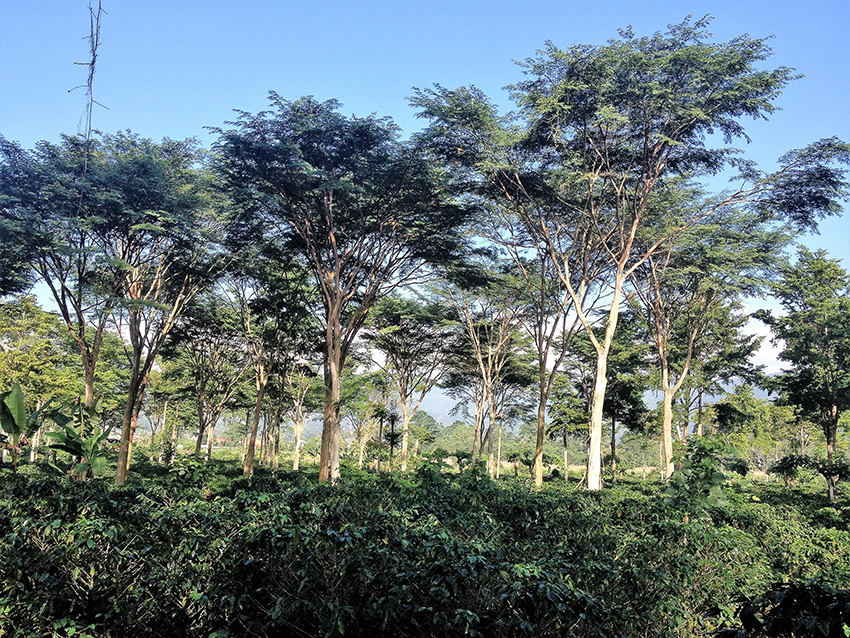
More information:
Leida Mercado
Professor and Researcher – CATIE
Leader of the ESCALAR-ASDI
project Senior Researcher of the Environment for Development Network (EfD)
Focal Point for the TTU – CATIE Agreement
lmercado@catie.ac.cr
Written by:
Esteban Rodríguez Zamora
Communicator
Information Technology and Communication
CATIE
esteban.rodriguez@catie.ac.cr

